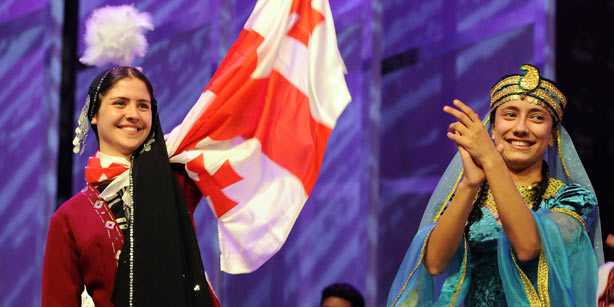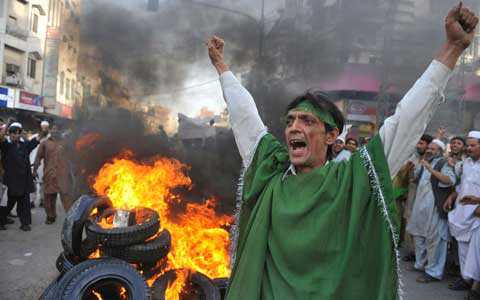Foreign students in 9th International Turkish Olympiads poetry final leg won hearts of Turks with their what they called “splendid performance” on Wednesday night. A Georgian student became first in the competition.

The poerty final of the olympiads was at the Haliç Convention Center in İstanbul on Wednesday night and thousands of people, including senior officials, politicians, high-profile guests from media and arts attended the event.
The Olympiads, organized by the International Turkish Education Association (TÜRKÇEDER), have brought hundreds of foreign students each year from Turkish schools established throughout the world. This year’s International Turkish Language Olympiads, which include nearly 1,000 students from 130 countries, started with a spectacular opening ceremony at İstanbul’s Dolmabahçe Palace on June 15. As part of the Olympiads, the students are expected to compete in 13 categories, ranging from poetry to songs. Various events, all under the umbrella of the Olympiads, are being held throughout Turkey.
The winner of the night was Leila Kurbanova from Georgia, who recited Mehmet Akif Ersoy’s poem and the second place went to Mehbare Zeynalova from Azerbaijan. A student from Belarus received the third place.
Prominent figures from Turkish literary world and authors also attended the event.
İstanbul Governor Hüseyin Avni Mutlu presented medals of the students who became top three at night. Mutlu said in his speech that he greets those [teachers] who traveled all across the globe “to meet people,” referring to the slogan of this year’s Turkish Olympiad.
He said he send his gratitude to the teachers who make great efforts while suffering to teach science, culture and love to these what he termed “beautiful children.”
Author and Zaman daily columnist Ahmet Turan Alkan said Turkish Olympiads are now becoming to be an international brand slowly, adding that these students will become in the future Turkey’s honorary ambassadors.
Yavuz Bülent Bakiler, a prominent Turkish author, said he thanks esteemed Turkish Islamic scholar Fethullah Gülen for assisting in launching Turkish schools abroad and that greets with respect those who spent their energy for this.
via Turkish Olympiads poetry competition finalists stun audience, Georgia wins.





